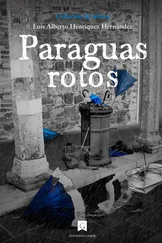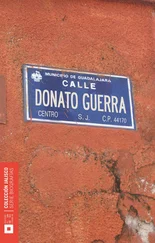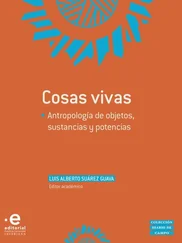Dexter drove his half-mile track out to the state road. Every winter he’d be out here plowing with the big red blade mounted on the Ford, and when he was done opening up his drive, he’d by God get cracking on the neighbors’ spreads down the road. Arnie and Ina, good Vikings from Minnesota. The Rays over to the east — they had a kid. Couldn’t be trapped out here in snow. That’s how America worked. Used to work. That was what made things function. It was all obvious come winter. Some folks wouldn’t pitch in with a snow shovel if they saw a naked one-hundred-year-old lady out there struggling with a drift. Of course, there had been no winter to speak of this year. His damn crab apple tree was already blooming. Dex fretted about the day he could no longer steer the plow. Who would help the neighbors then?
Ina the Viking was out in her potato patch waving at him like some idiot. Some people thought life was just the spiffiest thing that ever happened. Dexter raised one finger off the top of the wheel in greeting and roared down the blacktop toward West Linden, sun flashing like emergency flares off all the corners of his rig.
* * *
Juan Reyes sat in his dark restaurant on 5th Street with his head resting on one hand. The bowl of menudo before him blew steam into his face. The cloud was scented with the delicious essence of tripe and lime juice and cilantro and Cholula sauce and diced red onions. Fat hominy lurked in the murky red soup like a hundred eyes watching him eat. He took a wide spoon and delivered a shot of lava to his mouth and slurped it like a great mule at a water trough. He loved the way the tripe fought his teeth. Oh, but he was hungover. La cruda. Ta’ cabrona. His head crunched rhythmically in his skull. Everybody except gringos knew the only way to cure hangovers was with menudo and enough Cholula to make you weep blood.
Americans! What barbarians. He couldn’t get an American to sit down to a bowl of menudo if he were paying them. They didn’t like Mexican food unless it was smothered in sour cream and melted yellow cheese. They didn’t care if the cheese was squirted from a can — as long as it was hot and yellow and copious. On their flour tortillas. Texas food, not Mexican food. Juan had never tasted sour cream until he was ten years old. He thought cheese was white and came from a goat. And he ate his first flour tortilla in Juárez.
Ah, menudo. His customers didn’t know what they were missing. He sipped his cinnamon coffee. It wasn’t just menudo — they didn’t come in anymore for anything. He was certain the recent vogue in fish tacos would enliven his business, but the Iowans had lost their interest in Taquería Los Reyes. His brother Hugo had gone off to Chicago, where he could make fancy Asian fusion banana and green tea leaf enchiladas in West Pilsen for the hipster Yuppies and Chuppies there.
Occasionally, college kids from Iowa City came down to West Linden and stopped by. Nerdy glasses and earrings and hilarity. They had come for ironic meals. Mexican food in the midwestern heartland. Jajajajaja.
It was his old El Jefe, Señor Dexter, who pointed out the problem. He’d been the only client, again. Eating carnitas of pork in red sauce, again. Juan had sat with him and let slip that business was so far down that he might have to close the taquería and return to the farm.
“Do you think,” he had asked his old boss, “is an anti-immigrant thing?”
Dexter Bower had glared at him with that hawkeye of his.
“You’re asking me if they’re racists?” he demanded.
Juan shrugged.
Dexter scooted his chair back and said, “C’mere.”
They stepped out the door onto 5th Street.
“Main Street,” Dexter said. “USA.”
“Sí.”
“Two trucks and a Cadillac.”
Juan, nodding.
“This isn’t New York City, Juan. This is West Linden.”
“Yes.”
“You boys came in here and picked our crops. Then you knew a good thing when you saw it and started to settle. The migrant workers left guys and gals here like seeds. Am I right?”
“You right, Jefe.”
“And you made restaurants.”
“We did. Good ones!”
“Not arguing that, Juan,” Dexter said. “But we didn’t have but three restaurants in town. Now look.”
He pointed all around him.
Taquería Los Reyes. Across the street, Pedro’s Así Es Mi Tierra. Down the block, Araceli’s Cantina La Buena.
“There’s nothin’ but tacos on this goddamn street, Juan! Pee-dro over there was the last one to move in and that just about tore it. Man, how many tacos do you expect a fellow to eat? The mayor has been begging McDonald’s to open a place here for a year just to eat a cheeseburger!”
“Caray,” said Juan. “What do I do?”
Dexter Bower, the sun on the sidewalk, offered wisdom:
“Diversify.”
* * *
Dexter drove past the cemetery and turned his head away. He still couldn’t bear to look in there. Didn’t like catching himself counting the stones till he found hers. Didn’t like feeling guilty that he hadn’t left flowers lately. All flowers did was wilt and turn brown.
A thousand miles of bright land swam around the road.
He didn’t know what the hell people were talking about when they called Iowa dull. The fields were the deepest green and brightest gold on earth. The sky blew high with piles of electric clouds. And grackles and crows flew between cottonwoods and fence posts. He loved it, loved it like a girlfriend. From the bluffs on the Mississippi to the flat acres of tilled crops. He loved the barns and the silos and the old trucks and the horses drooping under shade trees and the watering holes. Sunflowers.
He loved the road and the turtles sneaking across it from pond to pond and the boys riding their bikes down dirt lanes. And he loved West Linden — looked for the barbershop where his dad had had his hair cut and his son did too, looked at the green square with its old cannon, looked to see if the flag was at half-mast, looked to see if the bookstore was open. He was a little sweet on the widow McGinnis, but he was shy, didn’t know how long was long enough before he could go courting. But he bought lots of used detective paperbacks from her. He even tried one of her mocha lattes from time to time. Dessert in a cup. She always tried to put whipped cream on it. He guffawed and rattled over frost heaves slathered with tar stripes. Dexter went so far as to like the ridiculous cell tower somebody had built to look like an incongruous giant pine tree. He liked it that a tornado had never hit them yet.
Well, the Mexicans had hit, that was true. But without them, he could not have afforded to keep farming. Now that most of them were gone — except for Juan and his busboys and wife — the Bower farm was in serious trouble. There were no kids around anymore to take up the slack, and even if there were, he couldn’t get them to bend to a hoe if he paid them three times what he paid the Mexies. When he gave away free pumpkins in October, the lazy sons of bitches didn’t even come out to pick their own. He had to pile them in the F-150 and give them away on the square.
“Hell in a handbasket,” he muttered, as he parked in the diagonal slot in front of Juan’s Italian Cuisine — We Cook American.
He stared at the window and shook his head.
It said: ESPECIAL TODAY — ESPAGETI!
Well, at least Juan was trying.
* * *
“What the hell is this?” Dexter said.
“Jefe! Is espageti!”
Dex looked at the generous pile of pasta and the thick red sauce. Mushrooms. That was good. Garlic bread (even though it was a Mexican bolillo). What baffled Dexter was the sliced hard-boiled eggs.
He pointed at the plate and glared at Juan.
“What?” said Juan.
It sounded like Guah?
Читать дальше












